Century Cruises invited me to experience its Three Gorges Cruise on the Yangtze River, sailing from Chongqing to Yichang, China, on its newest ship, Century Voyage. This experience was sandwiched between a travel industry tour that started in Beijing and Xi’an, before the cruise, and ending in Shanghai and Suzhou afterwards. As this was one of the largest tourism industry visits since the pandemic, not only was Century Cruises excited, but so were the local Chinese tourism boards and governments. They are all very much focused on American and other Western tourists returning to China!
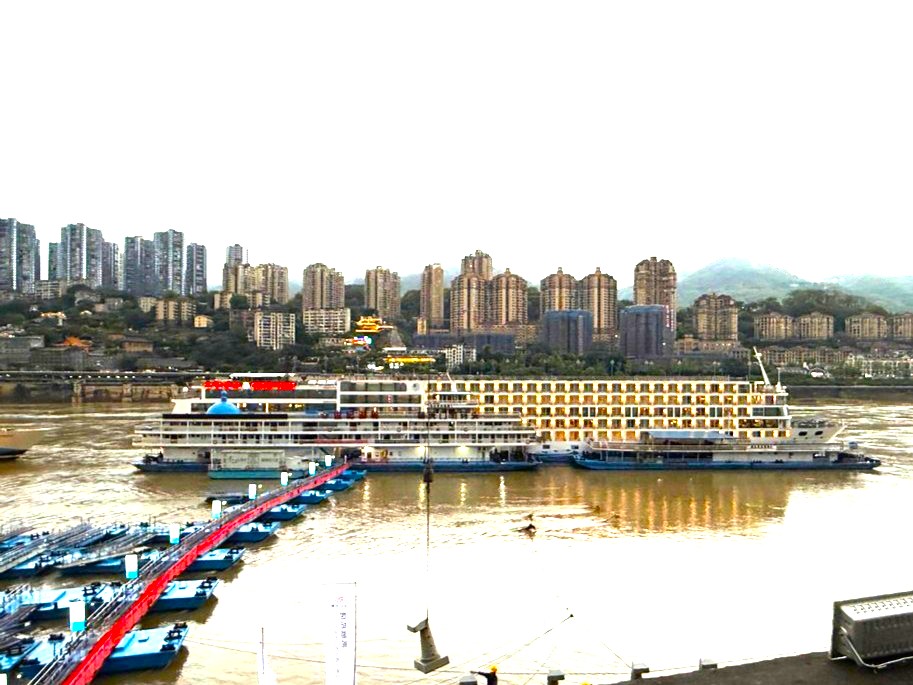
While I was not officially part of that tour, as a guest of Century Cruises, I paralleled it, so my prior articles are more focused on local experiences rather than tour quality or being part of an actual Century Cruises experience. In fact, some of the experiences were altered to ensure the participants saw some specific things the hosts desired and did so in an abbreviated time period. So, I barely mentioned my Century Cruises’ Century Voyage onboard experience. That said, here are my previous articles:
- Century Cruises – A Unique Opportunity to Experience This “Reimaged/New” Cruise Line
- Century Cruises – A Unique Opportunity to Experience This “Reimaged/New” Cruise Line: Beijing
- Century Cruises – A Unique Opportunity to Experience This “Reimaged/New” Cruise Line: Xi’an, Fengdu, Fengjie, and Qutang & Wu Gorges
- Century Cruises – A Unique Opportunity to Experience This “Reimaged/New” Cruise Line: Three Gorges Dam, Yichang, Shanghai and Suzhou
What I will now discuss is not only the Century Cruises experience, but some thoughts on traveling in China, taking a moment to address some things that may be understandably a bit uncomfortable for some. But isn’t that the real purpose of travel?
A question hovered during my journey: Is a Century Cruises river cruise a “luxury” experience? To that, you know my answer is another question: “What is Your Luxury?” As you will see, Century Cruises provides a wonderful experience on what are unequivocally the nicest and most modern ships on the Yangtze River. But more importantly, at least to me, it provides access to a travel experience that you would be hard-pressed to replicate, especially on its longer voyages.
First, however, is the Onboard Experience, and that starts with the crew. Having been the “white label” company previously providing Yangtze River cruises for Viking, AmaWaterways, and Uniworld, delivering a first-class Western-sensitive experience is not foreign to it. (Sorry, I had to do that!) For some more background on that, here is my prior article discussing that in more detail: Century Cruises – A “Reimaged/New” Cruise Line – China and Far Beyond
From stateroom attendants to reception staff, waitstaff, bartenders, and cooks, everyone had a smile and a charming desire to please. I found that the friendlier the guests were, the more open the staff was. (And they dealt with some of the more difficult members of the tour admirably and with class.) My receiving hugs from some staff after only three days (and that is not a typical Chinese gesture) was beyond charming. I would like to spend more time with them on a longer journey, for sure! That said, there were a number of “lost in translation” moments but I am confident that with more English-speaking guests sailing with them, it will be less of an issue.
I cringed when I was advised that there was a Crew Show the first night, but boy, was I wrong! This was no normal crew show. The talent and beauty were impressive and very enjoyable! (Yes, there was also some audience participation stuff.) The Cruise Director was terrific with his switching between Chinese and English, and it was all well done.
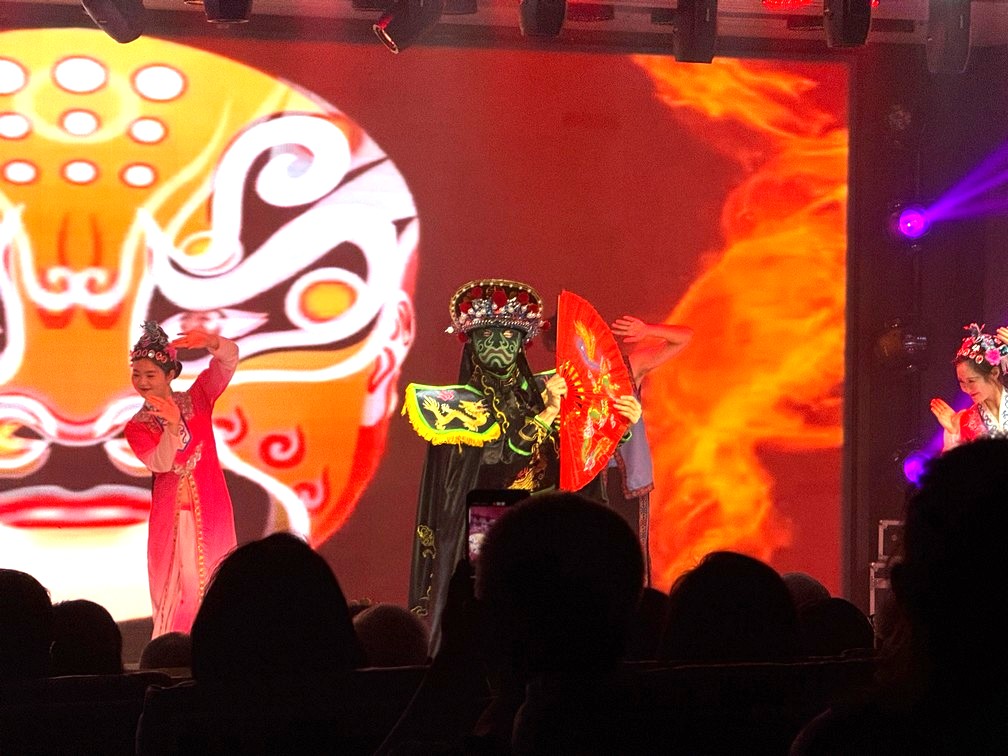
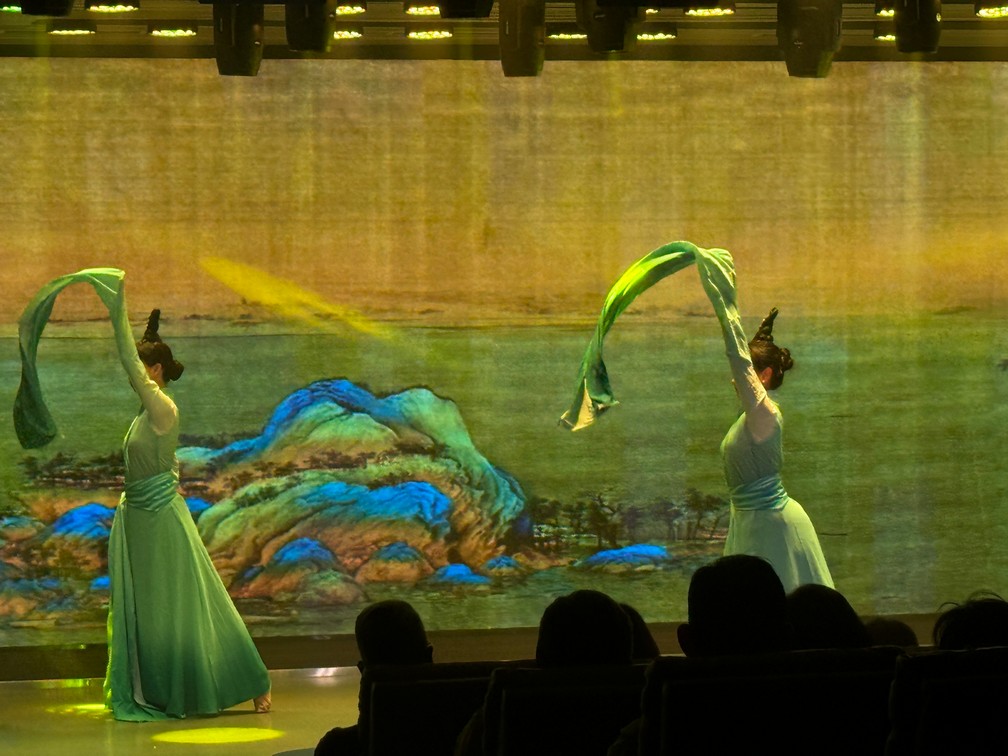
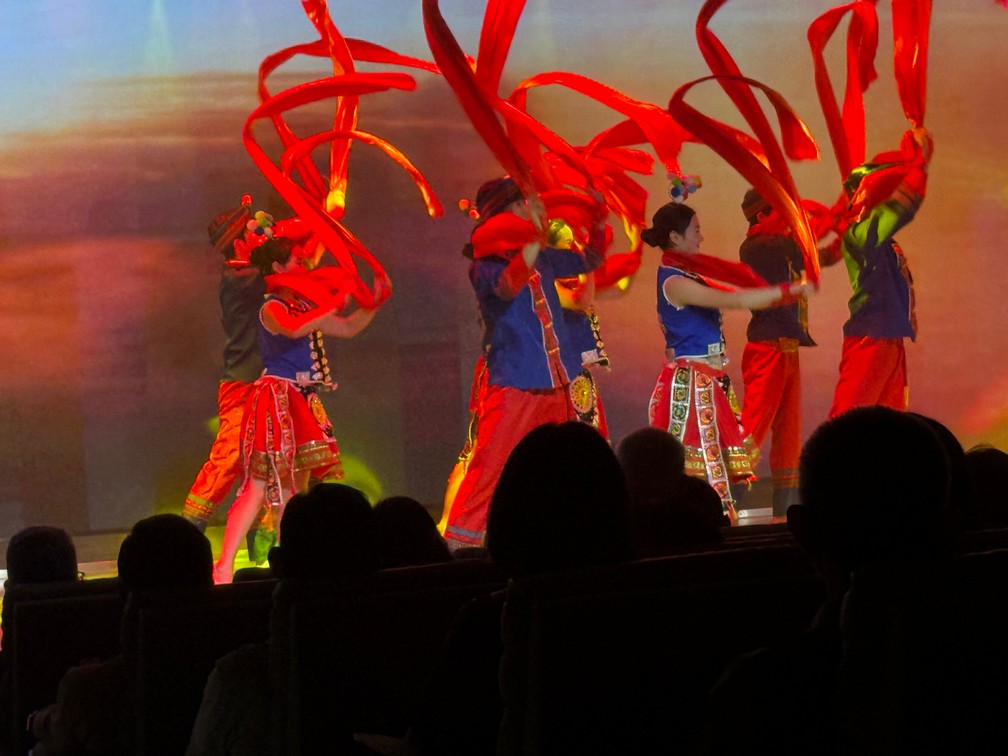
Century Voyage also offered a number of onboard activities when the tours were not operating. They are set out in the daily program left in your stateroom and on large televisions screens located in key locations on the ship.
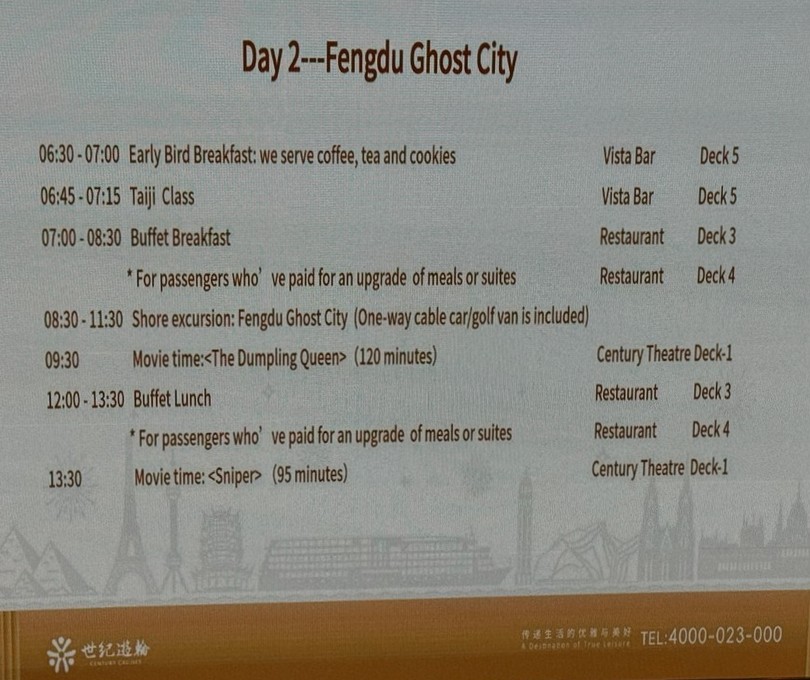
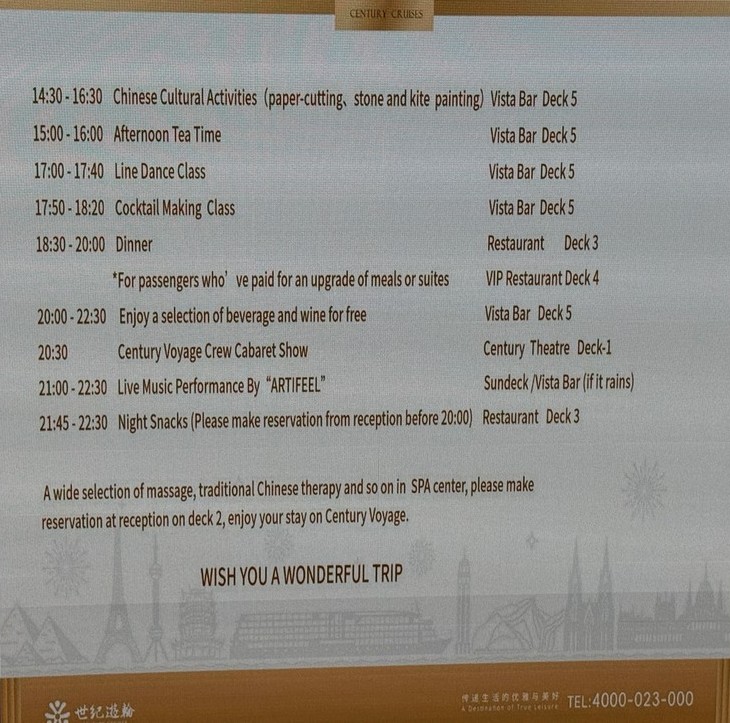
Now: The Hardware! Century Cruises’ Century Voyage, and all of Century’s ships, are modern, comfortable, upscale experiences and she is also a beautiful ship. She is much larger than a European river cruise ship, but smaller than the vast majority of ocean cruise ships. She has a capacity of 650 guests across 236 staterooms and suites, but also features numerous public areas with diverse venues, which I will discuss. While the ship was sailing at about sixty percent capacity when I was onboard, there was never any sense of crowds or lines, and I don’t believe there would be when sailing at full capacity.
These ships are also technologically advanced, being awarded “Green Ship” and “Intelligent Efficiency” by the China Classification Society. I won’t bore you with the specifics, but know that Century Voyage is designed to be the future of Yangtze river cruises.
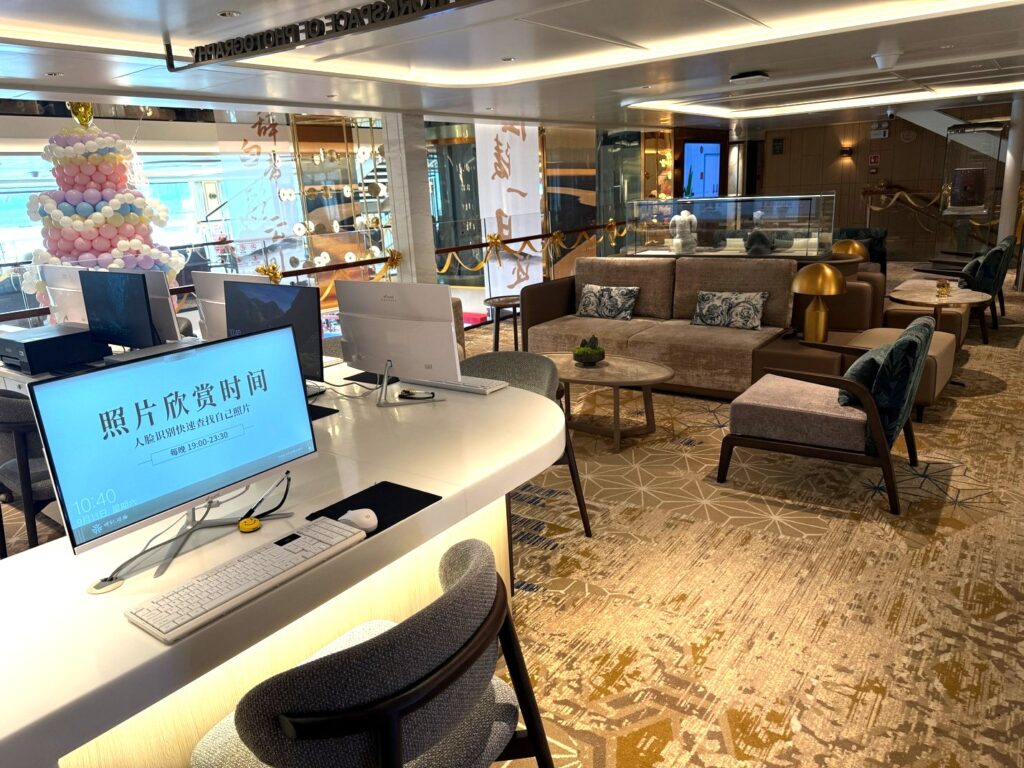
I stayed in a Category A Balcony Stateroom. It was nicely furnished with a desk, coffee/tea setup, bathroom with a spacious shower, robe, slippers, safe, and L’Occitane amenities. My only criticism is that there is only one fairly small closet and virtually no cabinet storage. (It works fine for the standard three-day Three Gorges cruise, but would present a challenge for the eleven-day cruise that I think is the best option.)
Complimentary Wi-Fi is provided, but due to fairly slow service and Chinese firewalls, I found that using my mobile phone as a hotspot (I use T-Mobile) was faster and gave me more options for robust online work.
Century Cruises is still working out the best way to address beverages for its Western non-suite guests. That being the case, I don’t want to discuss what may quickly become outdated. There will be, and have been, some included beers, wines, and non-premium spirits.

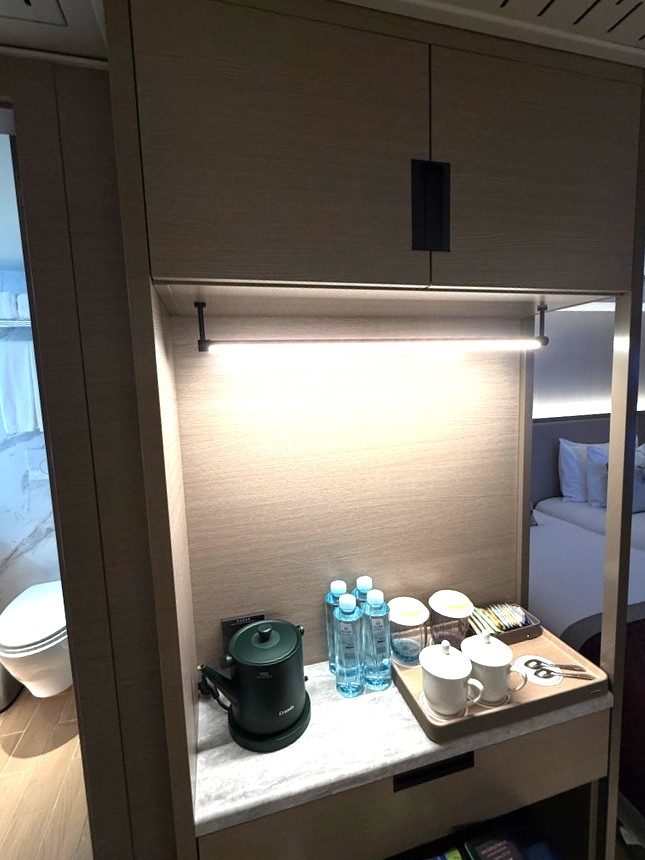
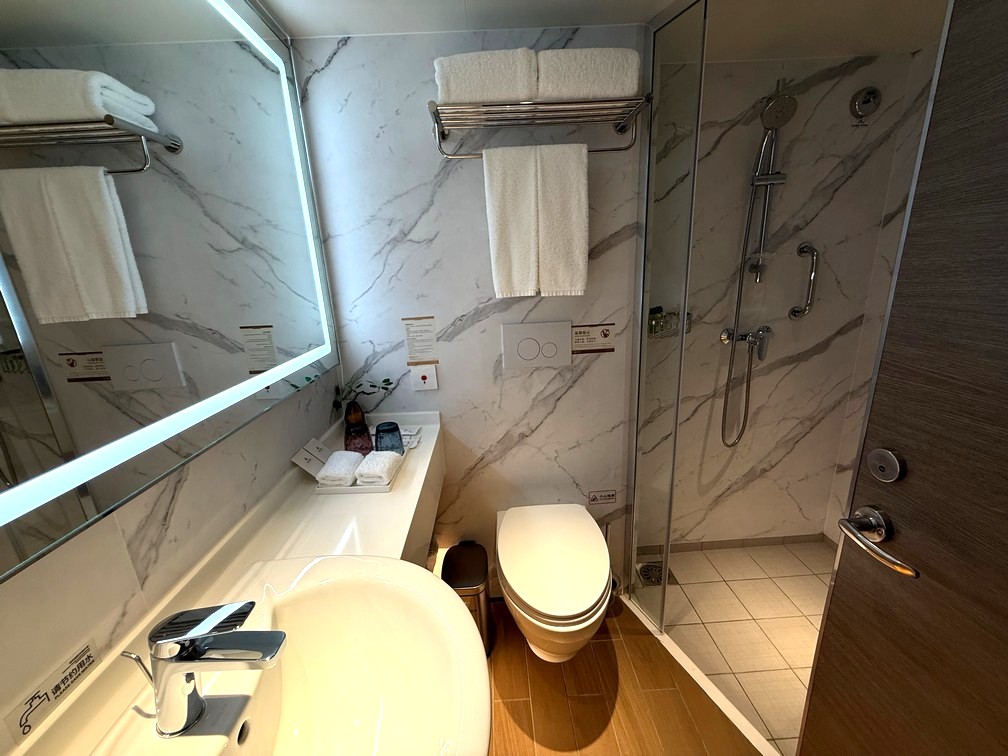
My stateroom was located on Deck 5 – the ship has six decks – but Deck 4 is dedicated to Suites. (Your room key gives you access to this exclusive area, which also includes a private two-story indoor lounge as well as an outdoor lounge on Deck 3.)
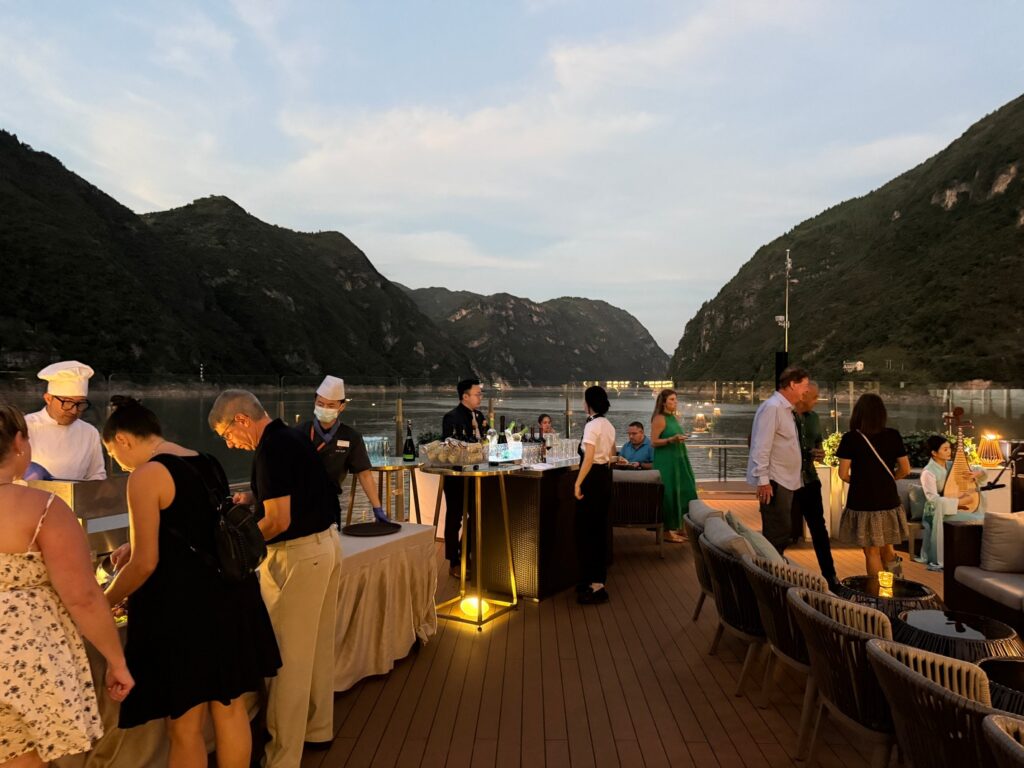
There is a range of suites, including a few with two rooms and, incredibly, high demand, Hello Kitty and Panda Suites!
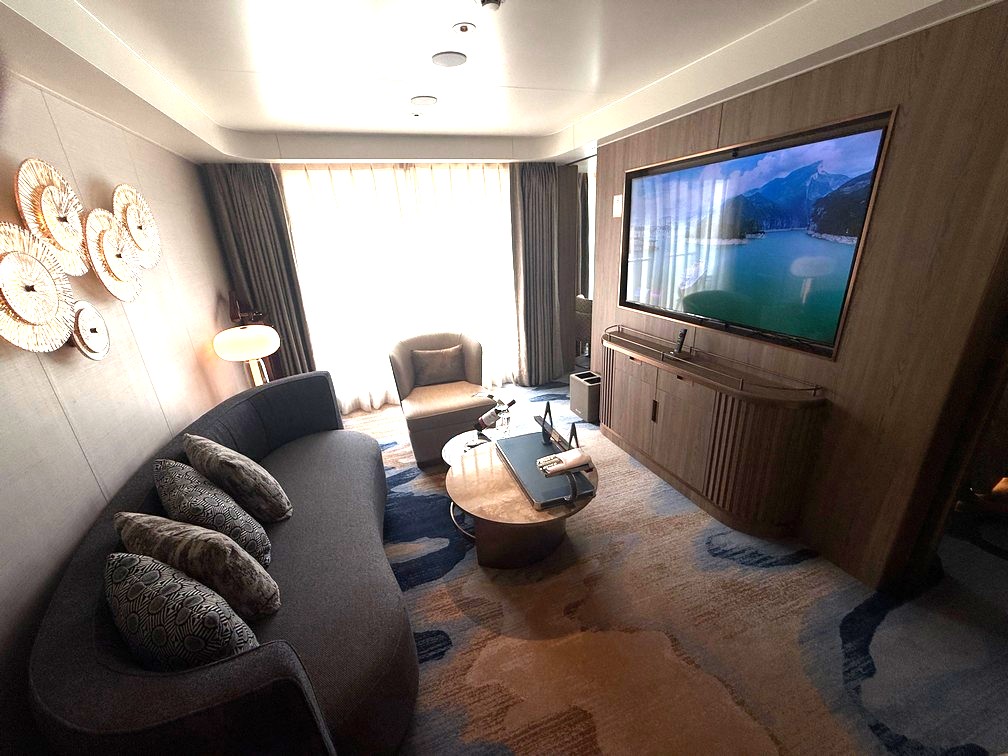
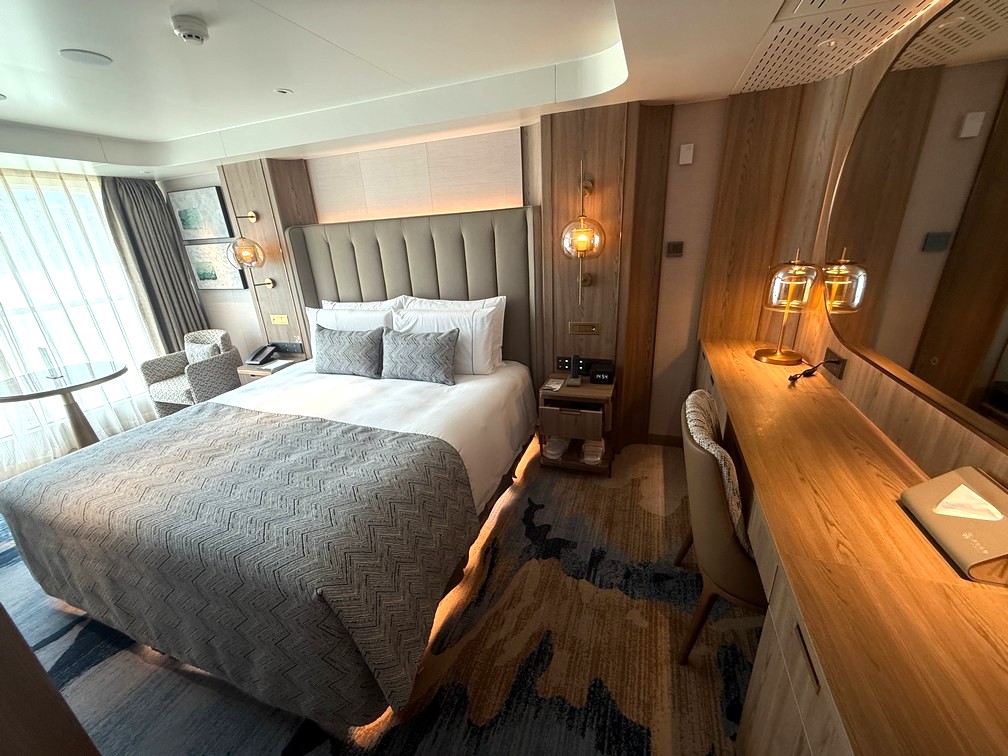
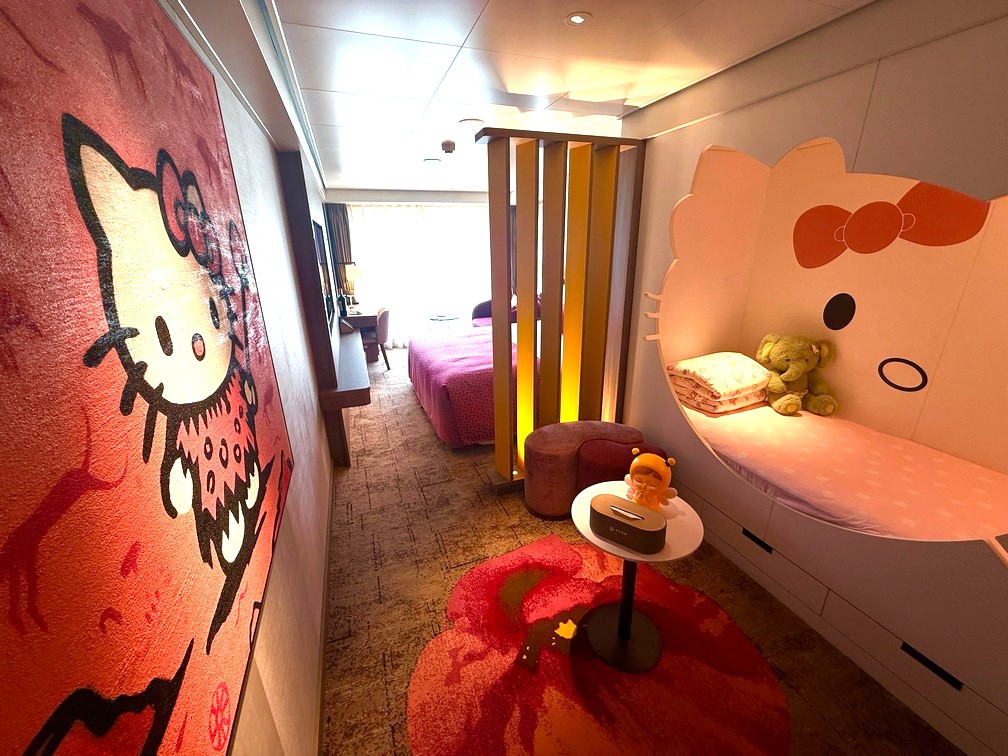
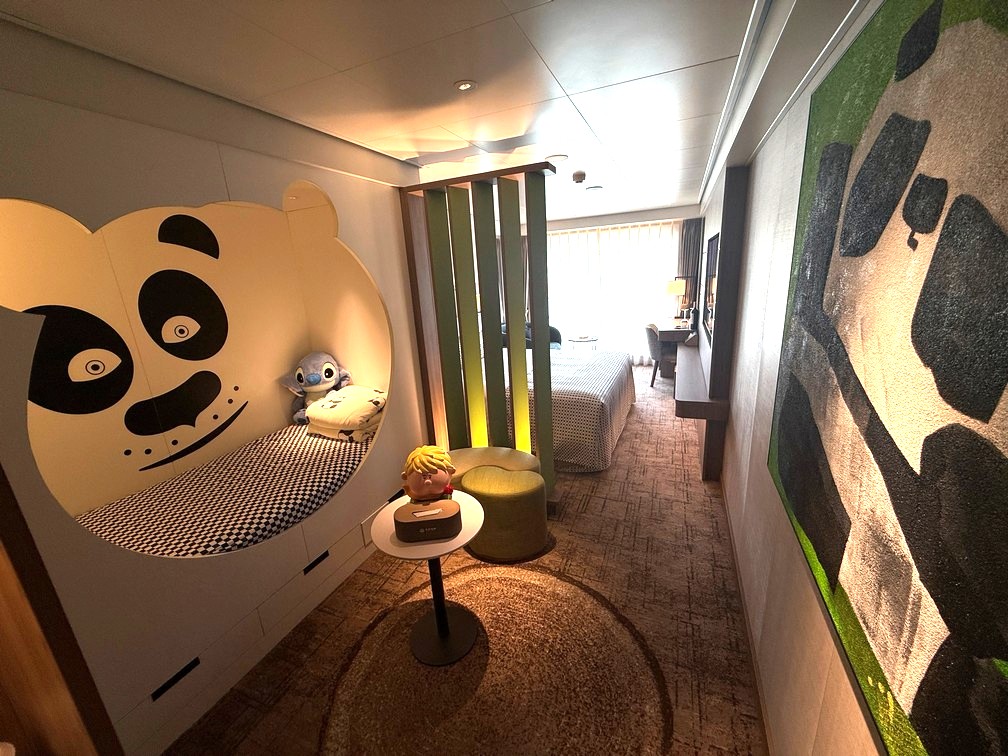
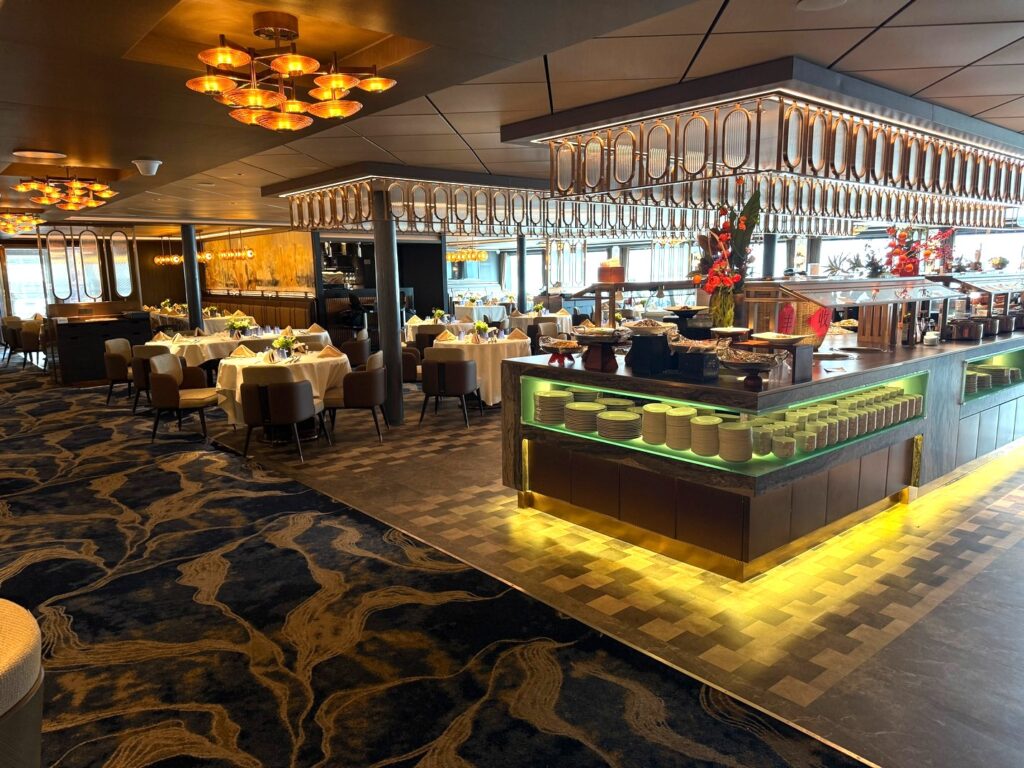
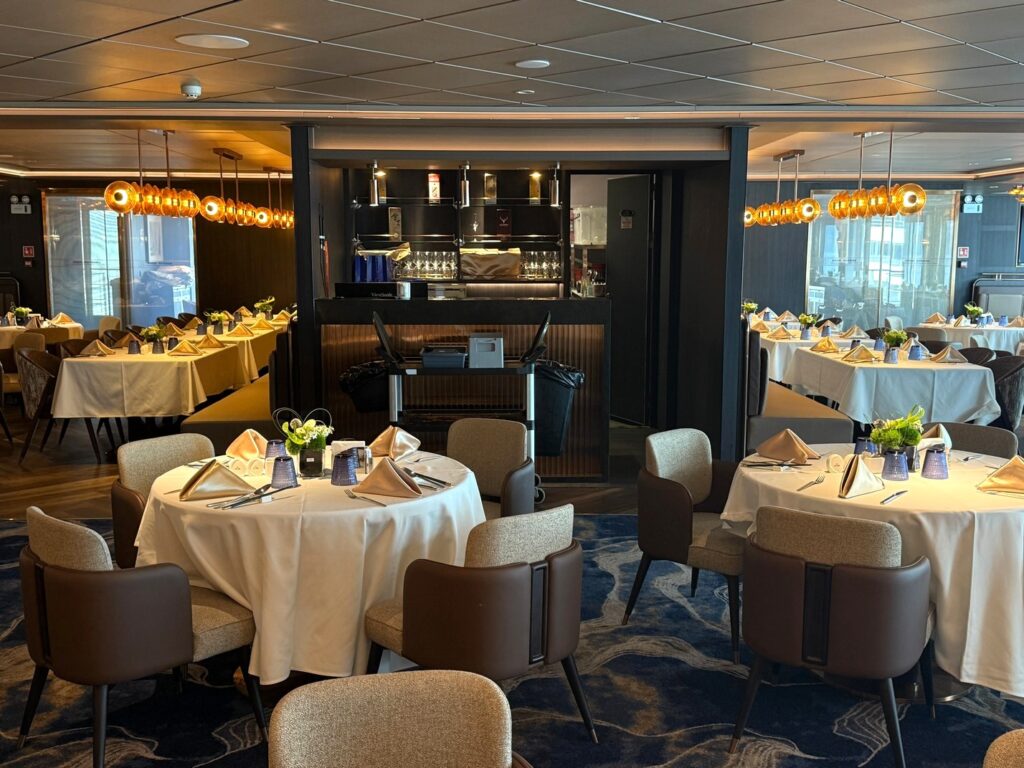
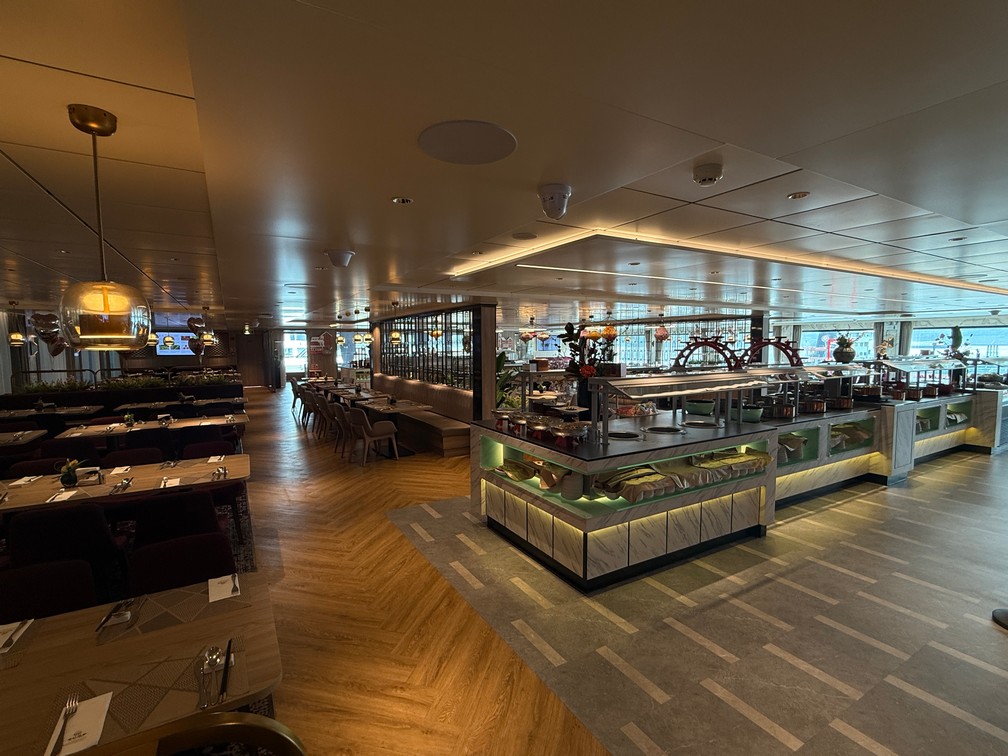
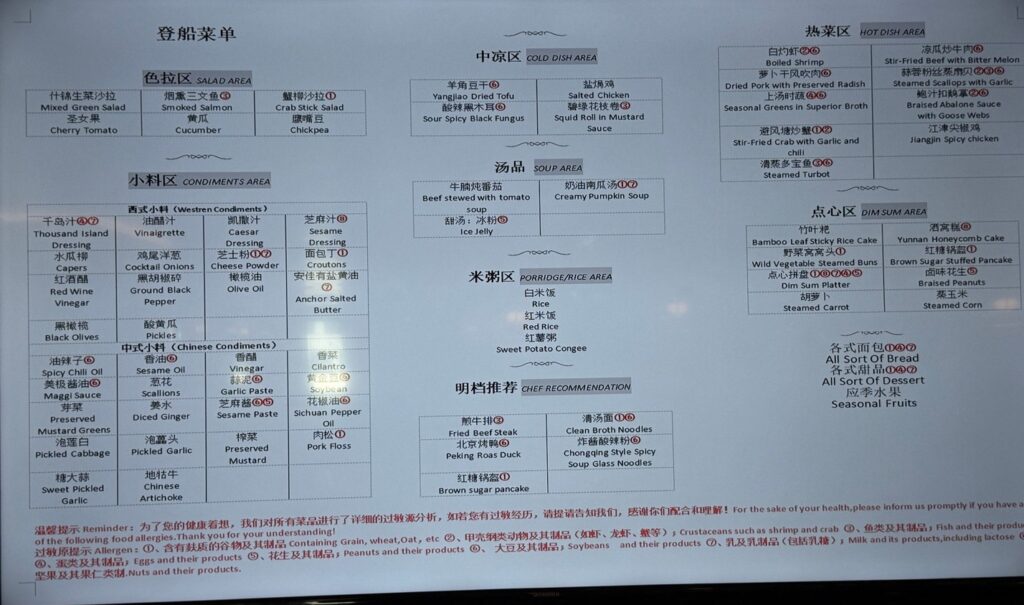
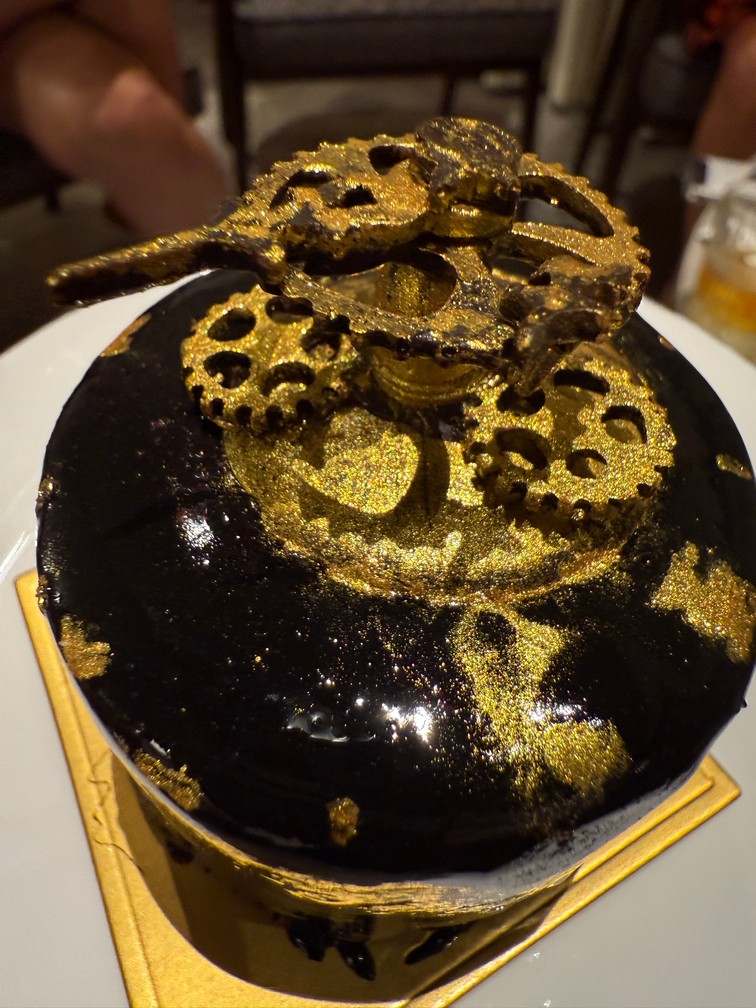
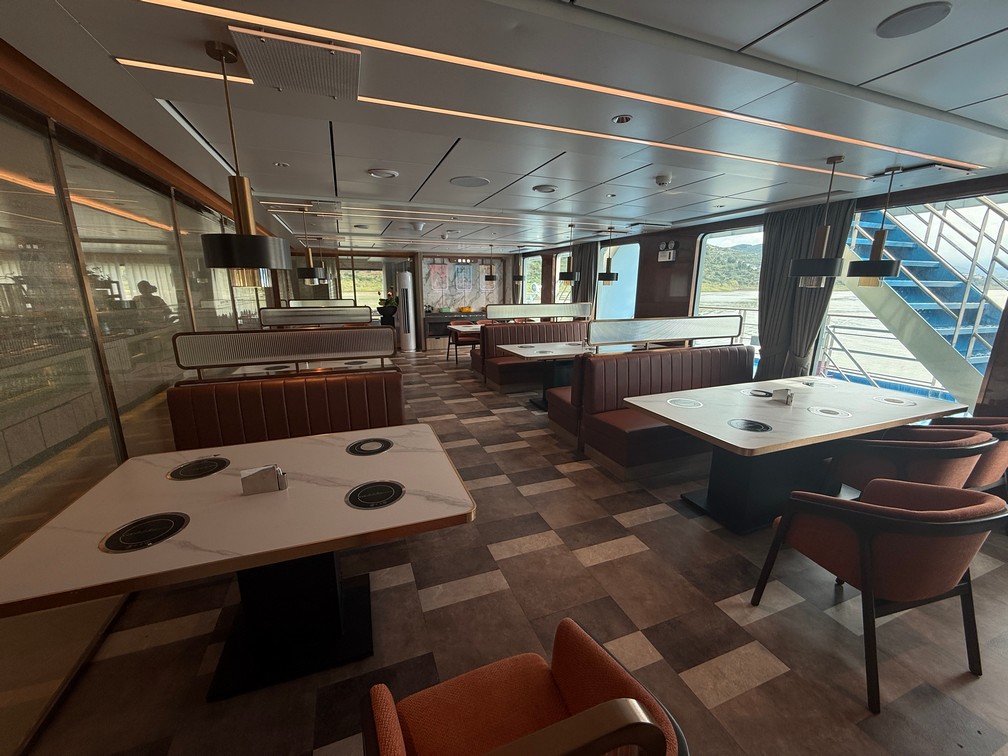

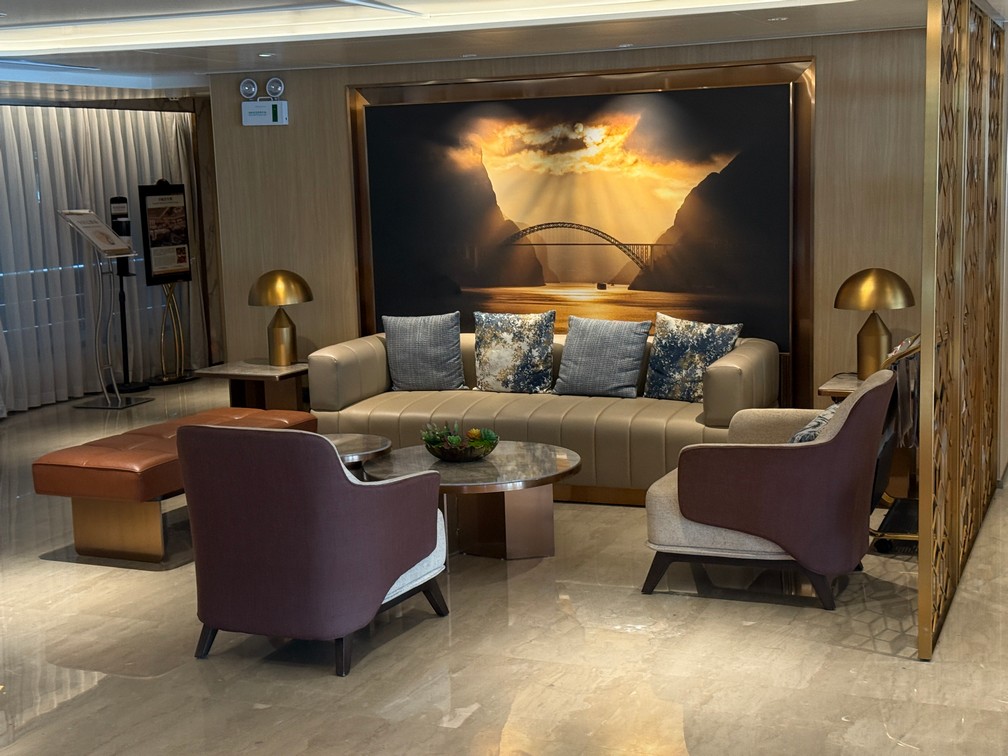
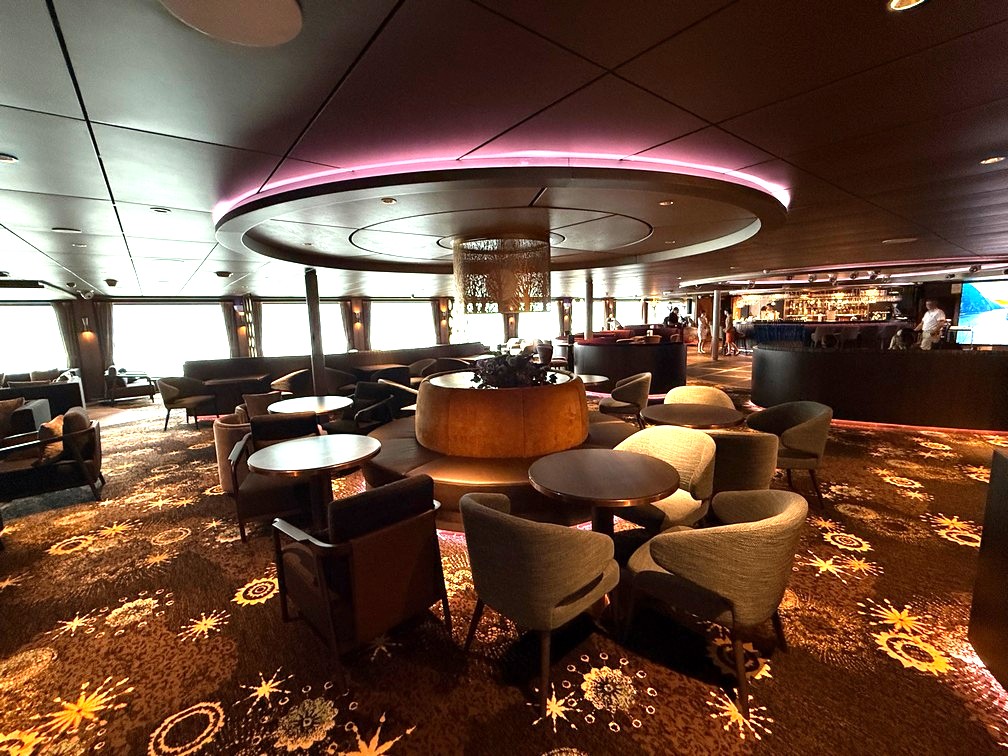
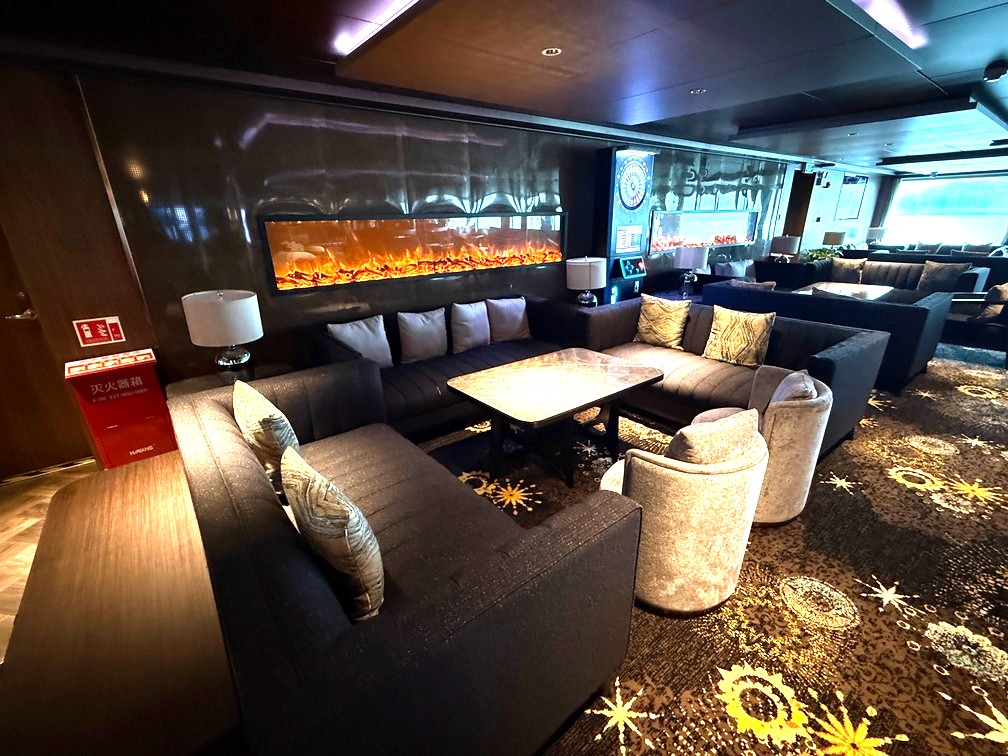
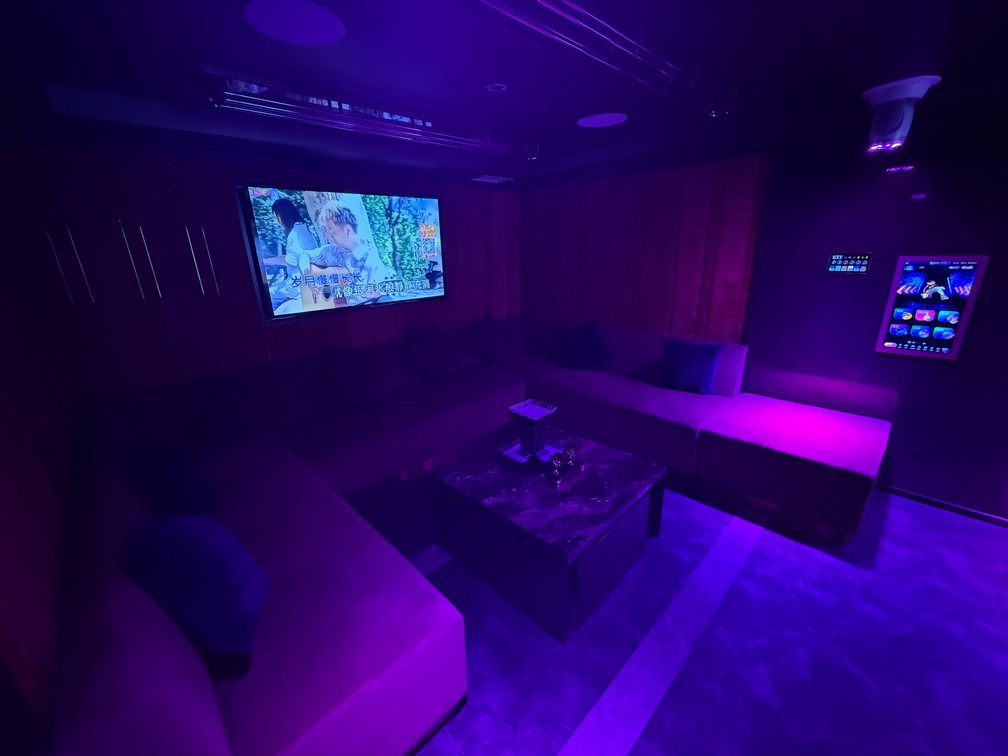
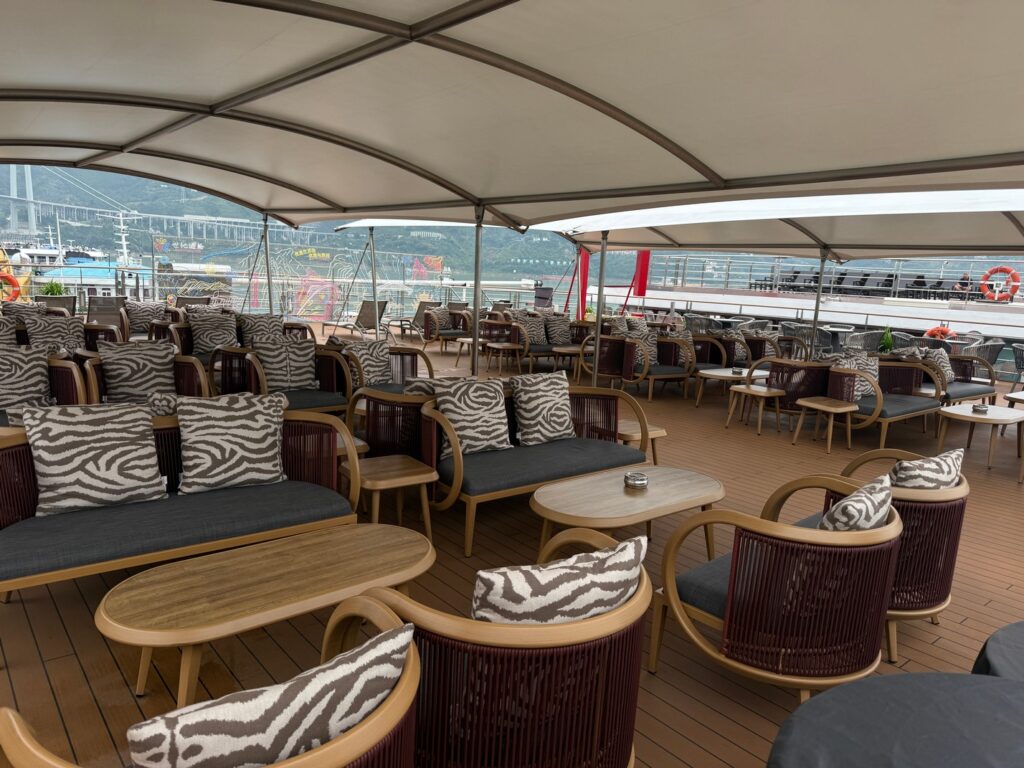
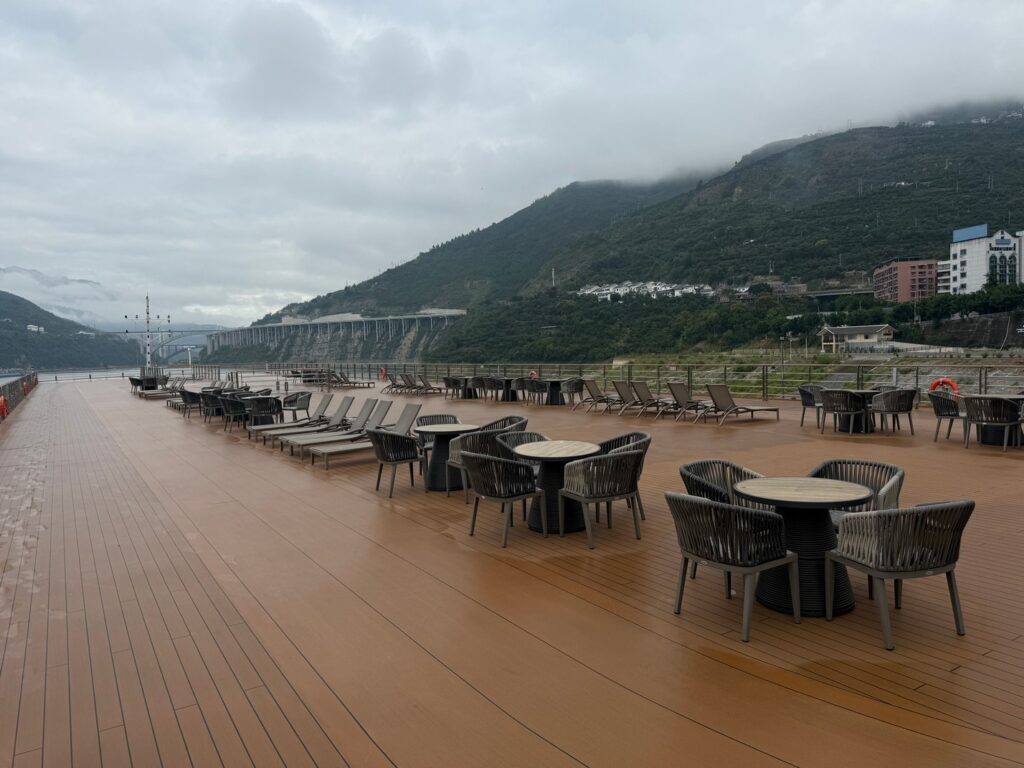
There is also a Spa offering a wide variety of treatments (Chinese and Western) and a Fitness Center.
As far as the shore excursions go, while I did not necessarily have a typical tour pre or post, during the river cruise portion, I found the ship tours to be good quality with English-speaking guides and visits long enough to explore each site properly, and fortunately without “filler” time so that they would take up an entire morning or afternoon.
For pre- and post-tours, I think that for the luxury client, group tours should, budget-dependent, be avoided and done with a private guide. You will see more in less time by focusing on your interests and avoiding the issues that come with larger group travel. (I know two excellent guides that can guide you through Beijing and/or Shanghai, for example, and have access to guides in most other locations.)
One note of caution: This river cruise or cruise tour is not for anyone with a serious mobility issue, and without exception, no wheelchairs. There are places where the piers are rudimentary, there are long, steep, and uneven steps, no handrails, etc., and elevators and escalators are few and far between. And that is even before you get to any of the ancient sites. Further, there is a lot of walking, usually without many places to rest.
Overall Impression: I left Century Voyage knowing that spending only three nights on the Century Voyage was not enough. Not only because I really liked the experience, but also because a more extended river cruise provides access to many other Chinese cities, villages, cultural and culinary experiences. My immediate thought is that a two- to three-night pre-cruise stay in Beijing and a two-night post-cruise stay in Shanghai, with a day trip to Suzhou, would be the ideal approach. (Xi’an, for the Terracotta Warriors, could be added, but it is a lot of time and logistics for a couple of crowded hours seeing them.)
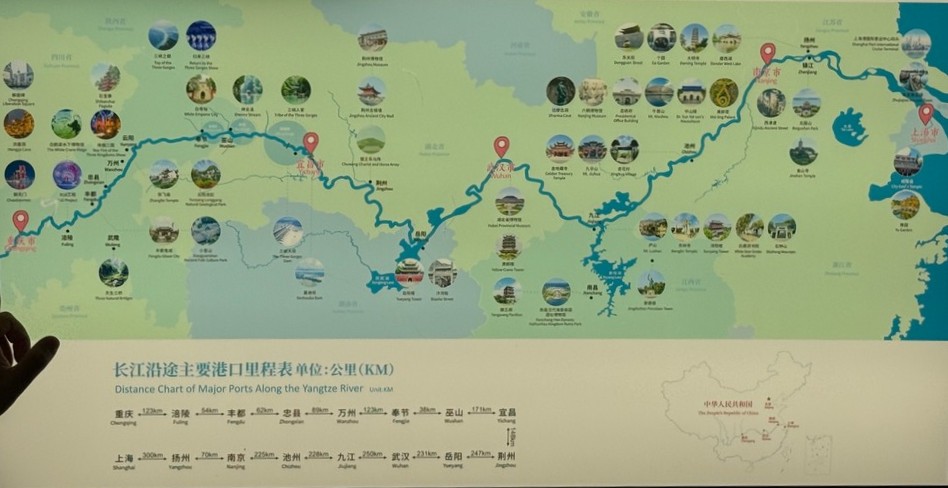
While Century Cruises, as a Chinese river cruise option, is new to most, it can’t be forgotten that it has been in the business since 1997, has offices in Fort Lauderdale and Los Angeles, as well as Chongqing, and has provided its ships and service to the most recognized American and Western river cruise companies for many years.
Thoughts on and Traveling in China
Travel opens the mind by showing us that the world is full of perspectives as vast as its landscapes — and in seeing through others’ eyes, we better understand our own.
As Maya Angelou wrote:
“Perhaps travel cannot prevent bigotry, but by demonstrating that all peoples cry, laugh, eat, worry, and die, it can introduce the idea that if we try and understand each other, we may even become friends.”
- From a Chinese perspective, it has a long history of being conquered, ruled, and ridiculed. In the more recent past, it was defeated and essentially governed by the British (the Opium Wars) and Japan (the Pacific War – World War II). Then it suffered under the Cultural Revolution of Mao Zedong, being relegated to an impoverished, third-world existence, ridiculed by the world. So, for it to now be seen as “flexing its muscle” by the West is perceived internally by the general population (to the extent they might even be aware or care about world events) as China finally being able to say it relies on and bows to no one.
- From a Chinese perspective, freedom means “safety” rather than the ability to do or say whatever you want. Crime is extremely low, and there is no gun violence. The American perspective of it meaning the freedom to carry guns, a higher crime rate, and privacy protections doesn’t make sense to them. And if that means being monitored and prohibiting “extreme” protests and conduct. (China does, however, swab you for explosives at airports and train stations and prohibits unapproved power banks and lighters.)
- From an American perspective, the government’s blocking of Western media (from Google to CNN, Fox News, TikTok, etc.) is censorship. But from a Chinese perspective, it reduces the potential conflict and worse from individuals for the sake of tranquility within the group.
- From a Chinese perspective, the wellness of the group is more important than the benefits to an individual.
- From a Chinese perspective, the use of a fork and knife makes no sense, as the cook is being paid to prepare your food; therefore, he should be the one cutting it for you.
- While air pollution remains an issue, it appeared to be better in Beijing than during my last visit in 2019. That is, in large part, to China’s obvious commitment to green energy (solar, wind, electric cars, etc.) and reduction of particulate pollution from fossil fuel burning. For example, approximately 95% of the buses, 50% of the automobiles, and 90% of the motorcycles in major cities are electric. To encourage that, license plates for gas automobiles cost 70,000 yuan (US$9,800), but are free for electric ones. Meanwhile, CO2 pollution in its industrial areas is up, and plastic bottles and packaging are everywhere and are increasing.
- China literally builds cities housing millions in five years, but you can’t drink the water from the faucet.
- China’s mobile telephone coverage is amazing. In the countryside or deep inside a steep gorge, 5G service is excellent, but internet service in hotels and on the ship was comparatively frustratingly slow compared to on a mobile device.
- China is now an almost totally cashless society, even when purchasing from street vendors. AliPay and WeChat Pay are used, with the former being more popular. You simply link your credit card to your account, scan a QR code, or have it scanned. I never needed to purchase yuan and tipped my guide in US dollars and charged a donation to the crew welfare fund to my account (and the receipt was curiously placed in a tip envelope and deposited in a communal tip box).
- For all the advancement in Chinese daily life, there is a growing gap between the haves and the have-nots, which is inconsistent with the overall cultural belief that the group is more important than the individual.
- Some troubling things are happening to certain minority ethnic groups in China, but these are not fully known to us, or at all to the local populations.
- The Chinese economy is not as robust as it may seem. With the government owning all the real estate (it only leases the land under buildings for a period of years, but can change that whenever it wants), and controls interest and currency exchange rates, much of the individual wealth tied to real estate is precarious.
- Meals are communal. Large round tables with dishes set out on lazy susans for everyone to share is the most common. During my recent visit, more than twelve dishes were always served and without counting the meals on the ship (which were buffet), I counted over 80 different dishes, not including duplicates!
- The diversity of ancient temples and castles to modern cities is mindboggling, but so is China’s overall lack of interest in its (troubled) past as it is so focused on modernization and the future.
